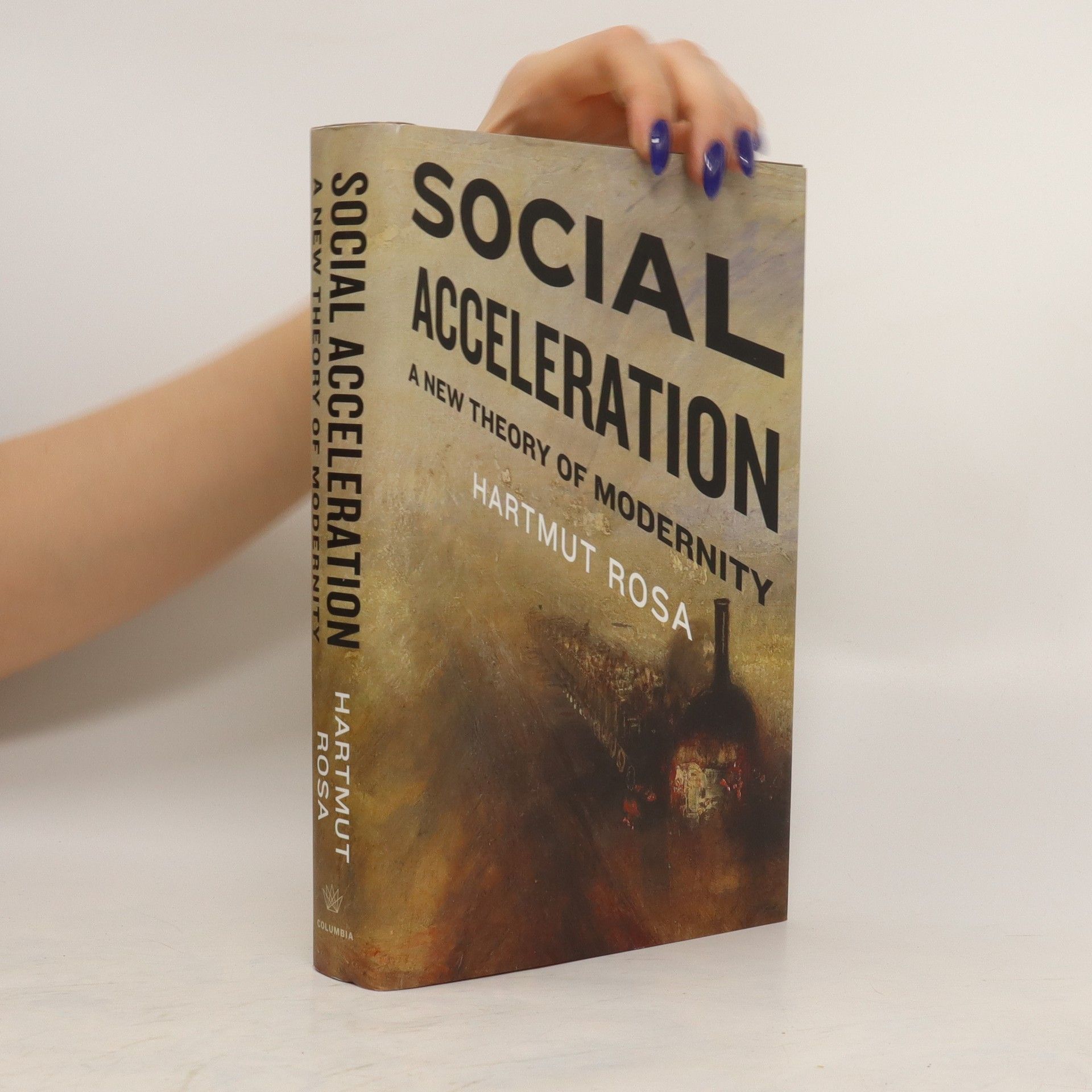Beschleunigen wir die Resonanz!
Bildung und Erziehung im Anthropozän. Gespräche mit Nathanaël Wallenhorst | Eine zugängliche Einführung in Rosas Denken und eine Weiterführung seiner Philosophie
Hartmut Rosa is a sociologist whose work critically examines theories of modernity and the sociology of time. He investigates how contemporary society shapes our perception and experience of time, exploring the dynamics of acceleration in modern life and its profound effects on human relationships and society. Rosa's insightful approach offers a deep understanding of the challenges and paradoxes inherent in the contemporary world.






Bildung und Erziehung im Anthropozän. Gespräche mit Nathanaël Wallenhorst | Eine zugängliche Einführung in Rosas Denken und eine Weiterführung seiner Philosophie
Focusing on the need for comprehensive social theory during crises, this work examines the contributions of German sociologists Andreas Reckwitz and Hartmut Rosa. Despite their differing approaches, both emphasize the importance of analyzing modernity as a social formation. Their theories aim to address the structural conditions and dynamics of contemporary societies, ultimately seeking to diagnose and propose solutions for the crises facing the modern world.
The Study of our Relationship to the World
Eine kleine Soziologie des Heavy Metal
Ehemals Musik junger Abgehängter und Outlaws, ist Heavy Metal heute mehr und mehr in der Mitte der Gesellschaft angekommen: Wohl mehr als 10 Millionen Deutsche hören Heavy Metal. Aber warum tun sie das? Was suchen und was finden sie in dieser Musik, die von Außenstehenden oft als purer Lärm empfunden wird? Warum wimmelt es im Heavy Metal nur so von Monstern und Teufeln - und wieso schweigen auch die Götter und die Engel nicht? Was erleben Metalfans, wenn sie ihre Musik hören - und welche Erfahrung treibt sie immer wieder ins Konzert? Wie ist es zu erklären, dass 40 Prozent der Metalfans behaupten, die Musik habe ihr Leben gerettet? Und warum ist Heavy Metal stärker als die Musikindustrie? Worum geht es im Heavy Metal wirklich? Diese Fragen und mehr beantwortet Hartmut Rosa in dieser kleinen Soziologie des Heavy Metal.
What role does religion play in modern societies? Is it merely an anachronism that hinders our economic growth? Is it a kind of superstition that people should be left to enjoy in private but should refrain from discussing in public? It is no secret that the Christian churches in Western societies have massive problems – quite apart from the recent scandals. Shrinking congregations are just one sign of their diminishing relevance. But what would happen to democracy if the resonance of religion were to fade entirely? Leading sociologist Hartmut Rosa addresses this fundamental question in a way that makes us think afresh about religion and the role it plays in our contemporary democratic societies. He argues that religion fosters a culture of dialogue, listening and reflection that allows us to form connections with others and experience the world as meaningful. This, in turn, helps citizens cultivate a democratic sensibility that can serve as an anchor in unstable times. With his characteristic clarity and insight, Rosa analyses our contemporary societies and dares to ponder what would happen if the centuries-old reservoir of wisdom embedded in religion were to be lost in an ultra-modern age.
Czym jest dobre życie i co nas powstrzymuje przed jego prowadzeniem? Dlaczego czujemy, że kręcimy się w kołowrotku, a świat staje się jedynie wydłużającą się listą zadań, którą można zrealizować tylko w trybie agresji? Te pytania motywowały mnie podczas pisania. Kiedy myślimy o braku czasu i pragnieniu dobrostanu, stają się one kluczowe, bowiem to, jak chcemy żyć, jest odzwierciedleniem tego, jak spędzamy czas. Wzrost gospodarczy i innowacje technologiczne były postrzegane jako warunki do zwiększenia autonomii, a wiele osób zyskało bezprecedensowy dostęp do dóbr i opcji życiowych. Obietnica nowoczesności brzmi, że to my decydujemy, jak żyć. Jednak te oczekiwania upadają w uprzemysłowionych państwach zachodnich. Współczesne pragnienie autonomii wymaga korekty poprzez odkrycie „pragnienia rezonansu”. Życie udaje się tam, gdzie ludzie doświadczają „doświadczeń rezonansowych” w pracy, społeczności, rodzinie, przyrodzie czy sztuce. Autonomia pozostaje ważna, ale „ślepe” mnożenie możliwości nie zawsze poprawia jakość życia. W doświadczeniach rezonansowych jednostki są poruszone przez to, co ich dotyczy, a jednocześnie odpowiadają na to emocjonalnie i cieleśnie, doświadczając siebie jako samoskutecznych.
Die Gesellschaft im stetigen Wandel Permanente Veränderung und konfliktreiche Dynamiken sind wesentliche Merkmale moderner Gegenwartsgesellschaften. Unter dem Einfluss der direkten und indirekten Folgen sozialer Prozesse stellt sich die Frage nach der Möglichkeit einer ‚begrifflichen Klammer‘ für die Vielfalt gesellschaftlicher Phänomene erneut und vielleicht dringlicher als je zuvor. Das Buch will vor diesem Hintergrund die Antwort auf die Frage nach dem veränderlichen Wesen von Gesellschaft in dreifacher Hinsicht aktualisieren. Die vorliegende Einführung in die Gesellschaftstheorie macht anhand ausgewählter Theoretiker und Theoretikerinnen mit der Entwicklung der wesentlichen Grundbegriffe vertraut und verdeutlicht exemplarisch ihre Anwendung in konkreten gegenstandsbezogenen Analysen. Zugleich ist dieser Versuch einer Debattenübersicht zur Gesellschaftstheorie aber auch ein Plädoyer für einen starken Gesellschaftsbegriff, der Widersprüche, Dynamiken und Spannungen aufnimmt, ohne das Ziel aufzugeben, zu einem besseren Verständnis des ‚Ganzen‘ zu gelangen.
Eine Debatte mit Klaus Dörre, Nancy Fraser, Stephan Lessenich und Hartmut Rosa. Herausgegeben von Hanna Ketterer und Karina Becker
Angesichts der gegenwärtigen ökonomischen, ökologischen und sozialen Krisen zeichnet sich ab, dass die Wachstumsdynamik moderner Gesellschaften nicht mehr stabilisierend wirkt, sondern selbst zum Krisentreiber geworden ist. In diesem Band diskutieren die Philosophin Nancy Fraser und die Soziologen Klaus Dörre, Stephan Lessenich und Hartmut Rosa, was dies für die Gegenwart und die Zukunft der Demokratie bedeutet und welche Konzeptionen und Wege hin zu einer demokratischen Transformation vorstellbar sind. Aus ihrer demokratietheoretischen Perspektive intervenieren Viviana Asara, Banu Bargu, Ingolfur Blühdorn, Robin Celikates, Lisa Herzog, Brian Milstein, Michelle Williams und Christos Zografos.